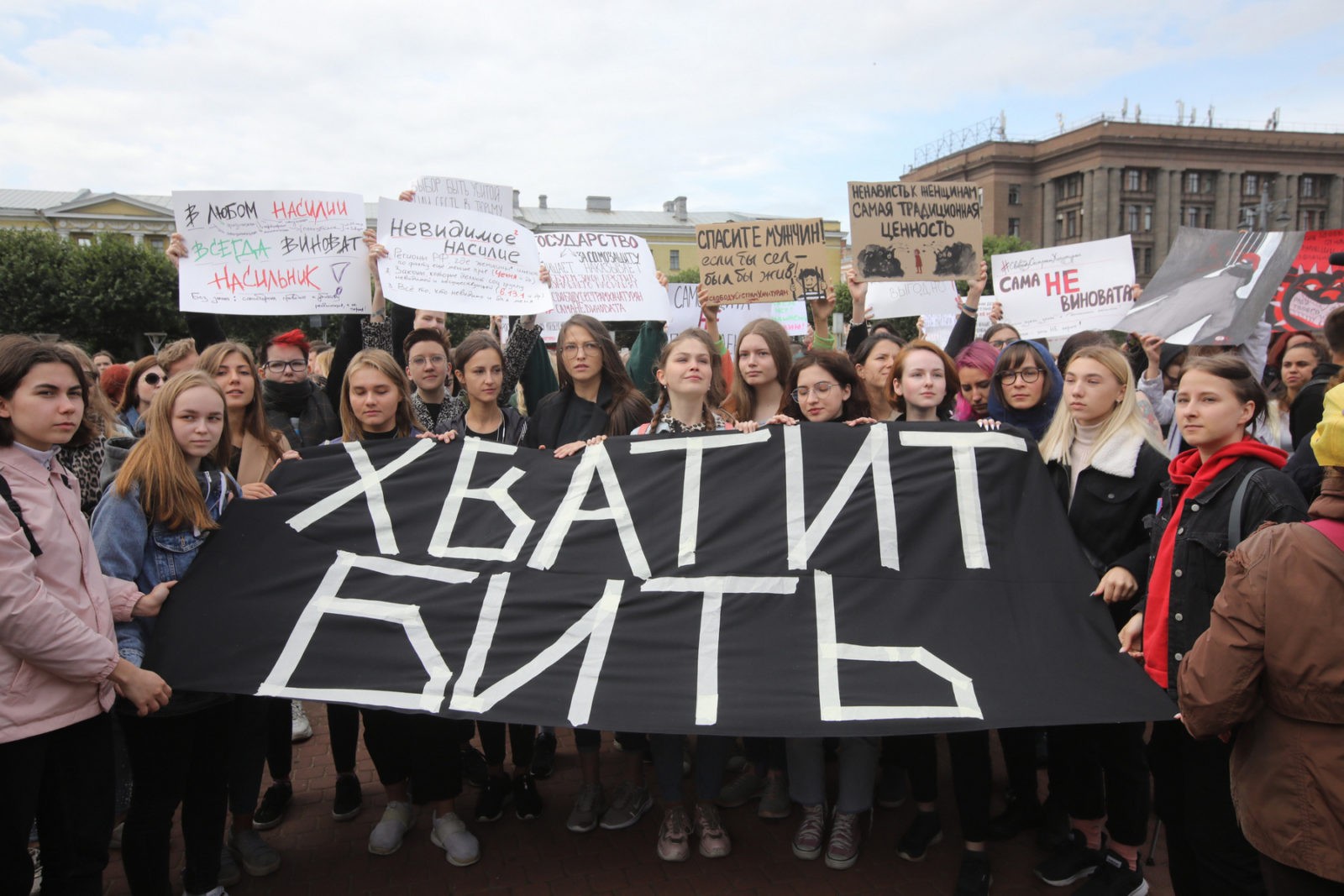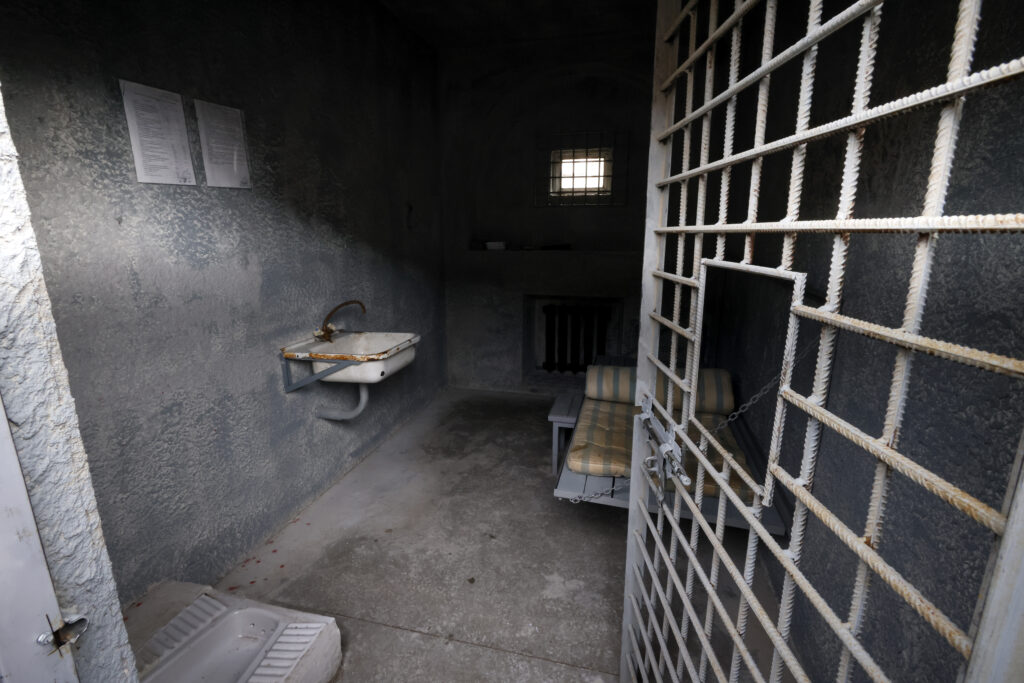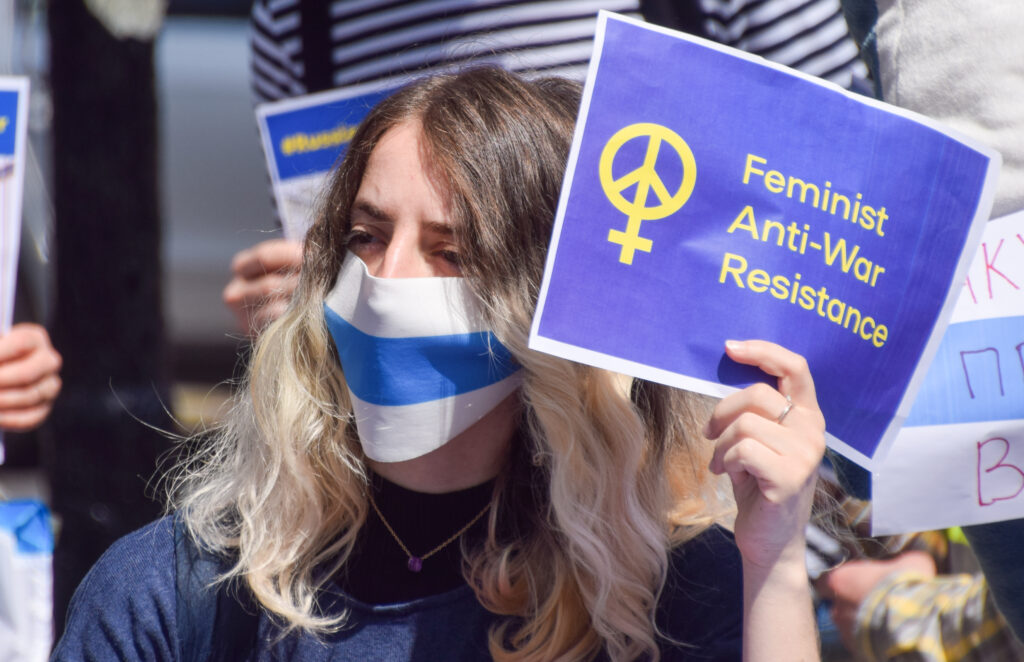Civil society organisations in support of victims of domestic violence started to appear in Russia in the 1990s. Since then, over 40 projects have sprung up. Still, there is no law on domestic violence. Officials have failed to see it as a socially significant problem, and have downplayed its seriousness.
This approach may be entrenched in a widespread gender-based stereotype in Russia. Domestic violence is perceived as an extension of the patriarchal system in which the husband is the master and head of the family, entitled to resort to any means to compel obedience. Hence, domestic violence used to be a taboo at the state level.
Meanwhile, the situation has only got worse. According to the UN, from 2010 to 2015, the number of cases of domestic violence in the Russian Federation increased by 20%. The Interior Ministry then noted that 40% of all serious and violent crimes were committed in the family; 36,000 women were beaten by their husbands (partners) every day.
In 2016, State Duma Deputy Salia Murzabaeva and Senator Anton Belyakov drafted a domestic violence bill. This introduced a simplified procedure for issuing out-of-court orders to protect victims and their loved ones. These crimes were to become subject to public or private-and-public prosecution. That is, it would be impossible to stop the abuser’s prosecution on the grounds that he and the aggrieved party had reconciled. The bill, however, was returned to its authors for revision ‘to fulfil the requirements of the Constitution of the Russian Federation’.
Despite the depressing statistics, the Russian government decriminalised the first offence of battery of family members in 2017. The move was widely criticised by human rights defenders. Anna Rivina, director of the Abuse Problem Resolution Centre Nasiliu.net (‘No to Violence’) pointed out that battery should be treated as a crime regardless of the context: ‘otherwise it turns out that battery, which entails consequences for both physical and psychological health, is put on a par with illegal parking or smoking where it’s prohibited’. Rivina and the lawyer Mari Davtyan noted that decriminalisation may lead to an increase in the number of beatings, ‘since now there are no measures that restrain offenders, while victims have failed to receive effective protection’.
Also in 2017, Chairman of the Investigative Committee of the Russian Federation Alexander Bastrykin and Interior Minister Vladimir Kolokoltsev admitted that the situation had not improved, to put it mildly. Commissioner for Human Rights Tatyana Moskalkova even called the adoption of the decriminalisation law a mistake.
At the end of 2017, the story of Margarita Gracheva, whose husband chopped off both her hands, caused a broad public outcry. As it turned out during the investigation, Gracheva had informed the police about threats from her spouse on several occasions but it was ignored.
The Gracheva case triggered a new wave of debate about the domestic violence bill. Working groups under the auspices of the Federation Council and State Duma were established. In addition to senators and deputies, the Duma working groups include well-known public figures.
An October 2018 Human Rights Watch report added fuel to the fire. The authors emphasised that the Russian authorities were not taking the necessary measures to protect women against violence (for example, there is no institution of protection orders).
That same month, the human rights organisation Zona Prava (‘Justice Zone’) organised a nation-wide hotline on officials’ lackadaisical responses to complaints from the victims of familial tyrants. Interior Ministry officials showed interest in the results of the campaign, and collected information.
Meanwhile, according to a study by Saint Petersburg State University (SPbGU), the number of domestic crimes in Russia decreased from 49,600 to 33,300 from 2015−2018. The law on decriminalisation of battery in the family helped improve the statistics. Unfortunately, the number of violent incidents did not drop; the crimes themselves were simply re-classified as administrative offences.
The headquarters of the Russian Interior Ministry openly admits the shortcomings in their employees’ work. One can recall that Yana Savchuk of Oryel died because of a local police officer’s negligence. On the day of her murder, Savchuk called police fearing that her partner could kill her. Instead of detaining the abuser and future killer, a female police officer replied: ‘Don’t you worry. If he kills you, we will come to examine the body.’ Such cases cause public outcry and discredit the work of the police.
As of 2018, Russia was listed as a country with flawed legislation on protecting women against violence, according to the World Bank report Women, Business and the Law). In late 2018, Duma Deputy Oksana Pushkina announced that the bill was in its final stage. However, it became known in March 2019 that the deputies had hit a snag over the exact definition of the term ‘domestic violence’.
In July 2019, the UN Committee on the Elimination of Discrimination against Women (CEDAW) urged Russia to urgently adopt comprehensive legislation to prevent domestic violence. That same month, the ECHR issued its first ruling on a domestic violence case in Russia (on a complaint by Valeriya Volodina). In the Court’s opinion, the Russian authorities showed ‘reluctance to acknowledge the seriousness and extent of the problem of domestic violence in Russia and its discriminatory effect on women’.
Subsequently, Chairwoman of the Federation Council Valentina Matviyenko admitted that ‘we do not have accurate statistics [on domestic violence], no one collects them.’ She said law enforcement officers often ‘do not take reports seriously’ and instructed her colleagues to look into other countries’ experience. According to Matviyenko, ‘the patriarchal mentality needs to be changed’.
Russia is indeed one of the world’s laggards: Azerbaijan is the only other Council of Europe member state that has not signed, let alone ratified, the Istanbul Convention on Preventing and Combating Violence against Women and Domestic Violence. That being said, Azerbaijan passed a domestic violence law and adopted articles of the Criminal Code as well as many by-laws and instructions for bodies involved in working with victims of domestic violence. However, according to lawyers, police officers often persuade women not to bring a case.
In October 2019, Moskalkova said during a meeting with Council of Europe representatives that Russia might adopt the Istanbul Convention or incorporate its provisions into the law. She also invited Council of Europe members to hold a roundtable on protecting women against violence in 2020.
Still, the less progressive part of society opposes the initiative. In the autumn of 2019, 182 regional Orthodox and parents’ organisations wrote an open letter to Vladimir Putin with a request not to adopt the bill. They are convinced that it is being lobbied for by foreign agents; the LGBT community; and followers of ‘radical anti-family feminist ideology’. In November, the Orthodox movement Sorok Sorokov (‘Forty Times Forty’) launched a nationwide resistance action. It organised rallies against the bill in various towns and cities, though the initiative did not attract much attention. For instance, about 200 instead of the announced 1,500 participants took part in a rally in Moscow’s Sokolniki park. By the end of the event their number had dropped to 40−50 people, including journalists.
In November 2019, the authors of the bill (including Deputy Oksana Pushkina) reported they had received threats by e-mail and on social media. Pushkina informed a law enforcement agency and asked them to look into the cases. The results of the verification are currently unknown.
That same month, a scandal erupted around Deputy Minister of Justice Maxim Galperin. He had described Russia’s position on the cases of four female victims of domestic violence pending before the ECHR this way: ‘the extent of the problem of domestic violence, as well as the seriousness and extent of its discriminatory effect on women in Russia is greatly overestimated’. Such words voiced by Russia’s official representative at the ECHR drew an avalanche of criticism. Not only from international institutions, but also from officials and lawmakers in Russia. Pressure from the public made Galperin eat humble pie.
On November 29, 2019, the Domestic Violence Bill was published on the website for public consultation. The commentaries on the draft comprised more than 11,000 entries on how to improve the document.
Human rights defenders who provide help to victims of domestic violence found the current version of the bill too lenient; church leaders, for example, perceived its preventive measures as repressive. Patriarch Kirill even described the concept of domestic violence as a notion borrowed from outside, from abroad: ‘We must protect the family; any interference in family relations is fraught with grave consequences’.
Lawyer Valentina Frolova, who commented on the draft, wrote a letter to Matviyenko asking not to reinvent the wheel and to draw on international practice. Here, she wrote, effective definitions and mechanisms had been introduced long ago. She also reminded the legislators that being in a common-law marriage should not be an obstacle to obtaining protection against domestic violence.
Moreover, the document excludes acts that bear signs of a criminal or administrative offense from the definition of domestic violence. Thus, women will not be able to enjoy the right to a domestic violence injunction in such cases.
It is also necessary to take into account the extreme vulnerability of the victim who cannot report violence or ask for a protection order. For example out of fear of revenge, repeated violence, losing children or financial aid.
Stalking should also be singled out as a separate form of violence. It should be prevented by a restraining order: a ban on abusing the victim, i.e. keeping a certain distance away from her, her place of residence, work or study; a ban on contacting her via third parties.
By December 2019, the issue of domestic violence became one of the main topics of the human rights agenda in Russia; publications about family tyrants beating up and killing their victims appeared in the media most days. Given that, even the president and prime minister had to voice their opinion on the bill. Putin admitted he had not read it yet; Medvedev responded that he needed to analyse the document. He added: ‘Domestic violence exists since people complain. That means that it is not invented by journalists, that means that it is not inspired by enemies’.
In late December, Matviyenko expressed her view on the bill. She opposes the amendments to the Penal Code and Code of Administrative Offences pertaining to domestic violence. From her point of view, sufficient penalties for such crimes are laid down in the law.
According to Pushkina, the bill should be submitted to the Duma in January 2020. It is likely that the bill will be adopted this year. But hardly in a form that will fully satisfy human rights defenders. Even this (most likely half-way) solution will be the first serious official step forward in the fight against domestic violence in Russia.










